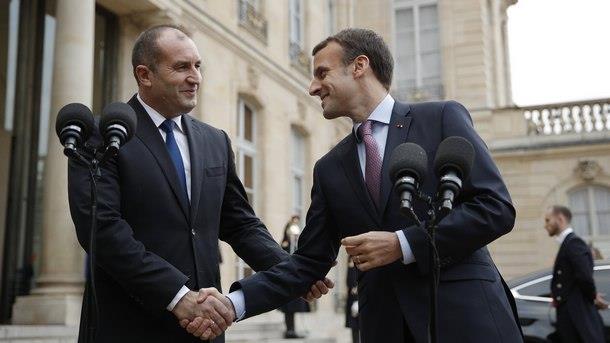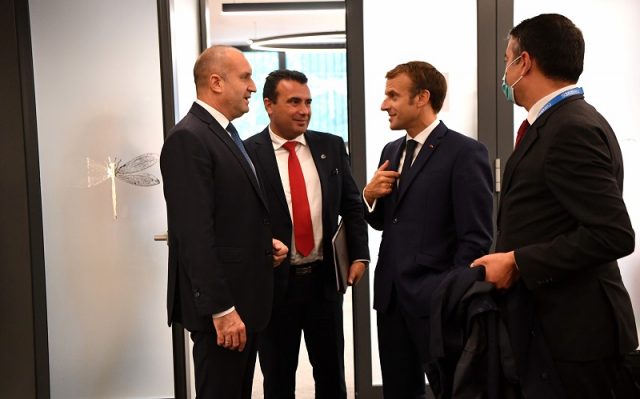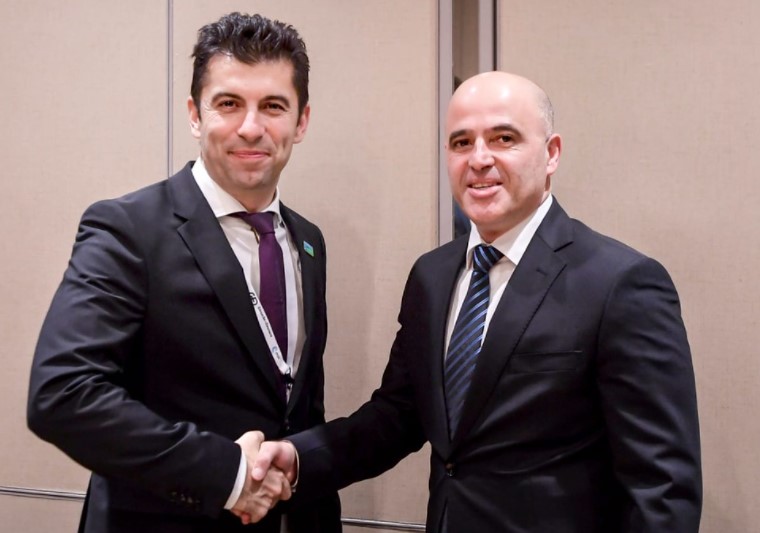The Bulgarian BGNES agency, which is considered one of the best informed, published shocking information about the dispute with Macedonia. In particular, French President Emmanuel Macron promised Radev and Petkov that all Bulgarian demands would be included in the negotiating framework, ie would become an integral part of negotiations with the EU.

In other words, no matter how long the negotiations with the EU last, Macedonia will not become a member if it does not meet the requirements contained in the Declaration of the Bulgarian Parliament, which is backed by all parties.
It clearly emphasizes that the Macedonian language is a dialect of Bulgarian, that until 1944 we had a common, which in Bulgarian translation means Bulgarian history and that Macedonians do not exist.
Here is the content of the Declaration that should be included in the negotiations with the EU.

Real progress in fulfilling the spirit and letter of the Good Neighborly Agreement. Real Progress, Sofia means giving up support or requesting recognition of the Macedonian minority in Bulgaria; beginning of a process of rehabilitation of the victims of the “Yugoslav communist regime who suffered repression because of Bulgarian self-consciousness”; a new lustration process that should shed light on the collaborators of the former Yugoslav security services in present-day Macedonia; and systematic removal of the qualification “Bulgarian fascist occupier” from all texts on monuments and memorial plaques.
There should be harmonization for personalities and events from the “common history until 1944”, and among them are listed Goce Delcev, VMRO and the Ilinden Uprising. They should also be reflected on information boards and other signs of historical and cultural monuments. Specific dates for celebrating joint events and personalities will have to be agreed, but “political representatives, representatives of state institutions in Macedonia, as well as state-funded media” will have to “base their statements and comments on the texts which will be agreed by the Commission.”
The term “Macedonian language” should not appear anywhere in the EU documents, ie if there is an absolute necessity, the term “official language of the Republic of Macedonia” should be used. If, as it is stated, “there is an absolute necessity to use the term ‘Macedonian language’ in EU documents and positions, there should be a footnote to clarify that it is” in accordance with the Constitution of the Republic of Macedonia “, it should be clear that the language norm, which has been declared a constitutional language in the Republic of Macedonia, is related to the evolution of the Bulgarian language and its dialects with its codification in 1944.
By the second intergovernmental conference, historians will have to agree on another set of personalities and events from history up to 1944 (no specification).
To harmonize the school curricula in history and literature in both countries, and additionally:” historical and literary sources from the 19th and 20th century, in parallel with the adapted texts, to be presented and studied in the original form in which they were written.
Bulgaria will insist that Macedonia submit a “curriculum in history, geography and literature” from primary schools to universities where all agreed decisions of the History Commission will already be implemented. The same goes for the monuments in the country.
Overcoming hate speech in public, especially towards people who identify themselves as Bulgarians, but also greater transparency in the ownership and financing of the media.




Comments are closed for this post.